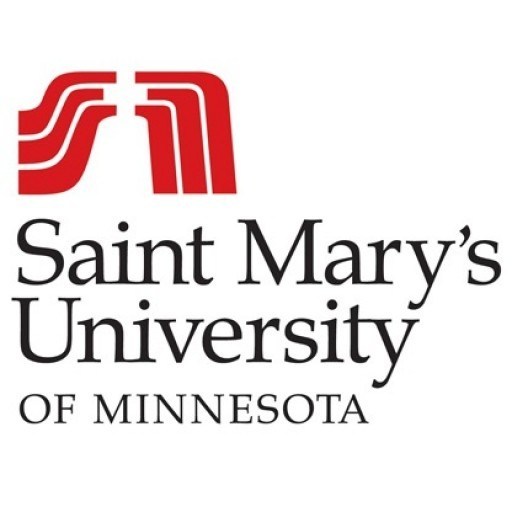The Bachelor of Arts in Criminology at Saint Mary's University offers students a comprehensive and interdisciplinary understanding of crime, criminal behavior, criminal justice systems, and societal responses to crime. This program combines theoretical knowledge with practical skills, preparing graduates for careers in law enforcement, corrections, criminal justice policy, social services, research, and other related fields. Throughout the degree, students explore various angles of criminology, including the causes and consequences of criminal behavior, the functioning of criminal justice organizations, and the social, political, and economic contexts that influence crime and its prevention. The curriculum features courses in criminal law, policing, forensics, victimology, juvenile justice, and ethics, among others, fostering critical thinking and analytical skills necessary for addressing complex criminal justice issues. Students also have opportunities for hands-on learning through internships, research projects, and collaborations with community organizations, which enhance their practical experience and professional readiness. Saint Mary's University emphasizes a student-centered approach, encouraging active participation, debate, and research. Graduates of this program are equipped with the knowledge and skills to analyze crime trends, contribute to criminal justice reform, and pursue advanced study or careers in various sectors dedicated to public safety, social justice, and community well-being. With a vibrant academic community and dedicated faculty, the Criminology program aims to develop informed, ethical, and effective professionals who can make meaningful contributions to society and advance the understanding of crime in a diverse and changing world.
Criminology at Saint Mary’s University offers a comprehensive and dynamic program designed to equip students with an in-depth understanding of crime, criminal behavior, and the criminal justice system. This program explores the societal, psychological, and legal factors that influence criminal activity and justice practices, preparing graduates for diverse careers in law enforcement, corrections, social services, and policy development. The curriculum combines theoretical foundations with practical applications, including research methods, crime scene analysis, and ethical considerations in criminal justice. Students will examine topics such as criminal law, forensic investigation, juvenile justice, terrorism, cybercrime, and victimology, gaining critical thinking and analytical skills essential for interpreting complex issues within the criminal justice realm. The program emphasizes experiential learning through internships, community engagement, and collaborative projects with local agencies, providing real-world insights and professional connections. Graduates will be capable of conducting research, interpreting legal documents, and applying evidence-based approaches to crime prevention and intervention. Saint Mary’s University is committed to fostering an inclusive and multicultural learning environment, encouraging students to consider the social determinants of crime and disparities within justice systems. The Criminology program is suitable for individuals interested in understanding the roots of criminal behavior and motivated to make a positive impact through policy, advocacy, or direct service roles. By the end of their studies, students will develop a well-rounded perspective on the complexities of crime and justice, ready to contribute effectively in various criminal justice and community settings.
Program requirements for the Bachelor of Arts in Criminology at Saint Mary's University typically include the successful completion of a set of core courses, specialized electives, and general education requirements. Students are expected to complete approximately 120 credit hours over the duration of the program, which generally spans four years of full-time study. The core curriculum often encompasses foundational courses such as Introduction to Criminology, Criminal Justice Systems, Theories of Crime, and Research Methods in Criminology. In addition, students must select from a range of electives that may include topics like Juvenile Justice, Forensic Psychology, Crime Prevention, and Cyber Crime.
To graduate, students are usually required to pass all required courses with a minimum grade point average of 2.0. The program emphasizes the development of critical thinking, analytical skills, and an understanding of social and legal aspects of criminal behavior. Practical experience is also valued; therefore, students might have opportunities to participate in internships, co-op programs, or community projects related to criminal justice and criminology.
Graduates of the program will be prepared for careers in law enforcement, corrections, juvenile justice, policy analysis, or further study in graduate programs. Admission requirements typically include a high school diploma or equivalent, and applicants must meet certain academic standards, which may include specific grade point averages and prerequisite coursework.
Students are also encouraged to participate in seminars, workshops, and conferences to stay current with developments in the field. The program promotes diversity and inclusion and aims to prepare students to work effectively in multicultural and evolving societal contexts. Additional requirements may include language proficiency testing or other institutional prerequisites. Students should consult the official Saint Mary's University admissions website and academic catalog for the most accurate and detailed information regarding program requirements.
Financing for the Criminology program at Saint Mary's University can be approached through various sources of funding available to students. The university offers several financial aid options, including scholarships, bursaries, and awards based on academic achievement, financial need, or specific criteria set by donors. Prospective students are encouraged to apply early for scholarships such as the Entrance Scholarships, which are awarded based on academic performance at the time of admission. Additionally, Saint Mary's University provides specific awards for students pursuing studies in social sciences and criminology, which can significantly offset the cost of tuition and related expenses.
Graduate students enrolled in the Criminology program may have access to teaching assistantships and research assistantships, which not only provide financial support but also valuable academic experience. These positions are typically competitive and require involvement in faculty research projects or departmental duties. Moreover, students can explore government student loan programs, which may include Canada Student Loans for Canadian residents and provincial loans, depending on eligibility criteria. International students should investigate regional scholarship opportunities or external grants available in their home countries or through international organizations.
Part-time work opportunities on or near campus can also contribute to students’ financial plans. Saint Mary's University facilitates part-time employment for students through its career services and co-op programs, helping students gain work experience while earning supplemental income. Some students may also consider private loans or bank financing, but these should be approached cautiously and with thorough understanding of repayment conditions.
Financial planning for criminology students should also include budgeting for study-related expenses beyond tuition, such as textbooks, supplies, housing, food, and transportation. The university’s financial aid office provides counseling and resources to help students develop sustainable financial plans. It is advisable for students to regularly review their financial status, stay informed about new scholarships, and meet with financial aid advisors to maximize available support.
In conclusion, financing a Criminology program at Saint Mary's University involves a combination of scholarships, awards, work opportunities, government aid, and personal resources. Early planning and exploration of all available options can significantly ease financial burdens and support successful completion of the program.
The Bachelor of Arts in Criminology at Saint Mary's University offers students a comprehensive understanding of the criminal justice system, the causes of criminal behavior, and the societal responses to crime. The program is designed to provide both theoretical knowledge and practical skills, enabling graduates to pursue careers in law enforcement, corrections, probation, victim advocacy, and various other fields related to criminal justice. The curriculum includes courses in criminological theory, criminal law, forensic science, juvenile justice, victimology, forensic psychology, and research methods, among others. Students have opportunities to engage in hands-on learning experiences, including internships, research projects, and community service initiatives, which prepare them for real-world challenges in the field. The program emphasizes critical thinking, ethical decision-making, and effective communication, essential skills for professionals working within the criminal justice system. Saint Mary's University fosters a collaborative learning environment through small class sizes and personalized instruction, ensuring students receive attention and mentorship from experienced faculty members who are active researchers and practitioners. The university's location provides access to a variety of criminal justice agencies and organizations for internships and employment opportunities. Graduates of the Criminology program are equipped with the analytical skills necessary to understand complex social issues related to crime and to contribute to policy development, crime prevention strategies, and community safety initiatives. Additionally, the program prepares students for graduate studies in criminology, law, social work, or related disciplines. Admission requirements typically include a high school diploma or equivalent, with a preference for students who demonstrate an interest in social sciences and community service. Overall, Saint Mary's University’s Criminology program aims to develop well-rounded, informed, and socially responsible individuals who can make meaningful contributions to society through their knowledge of criminal justice and dedication to public service.

